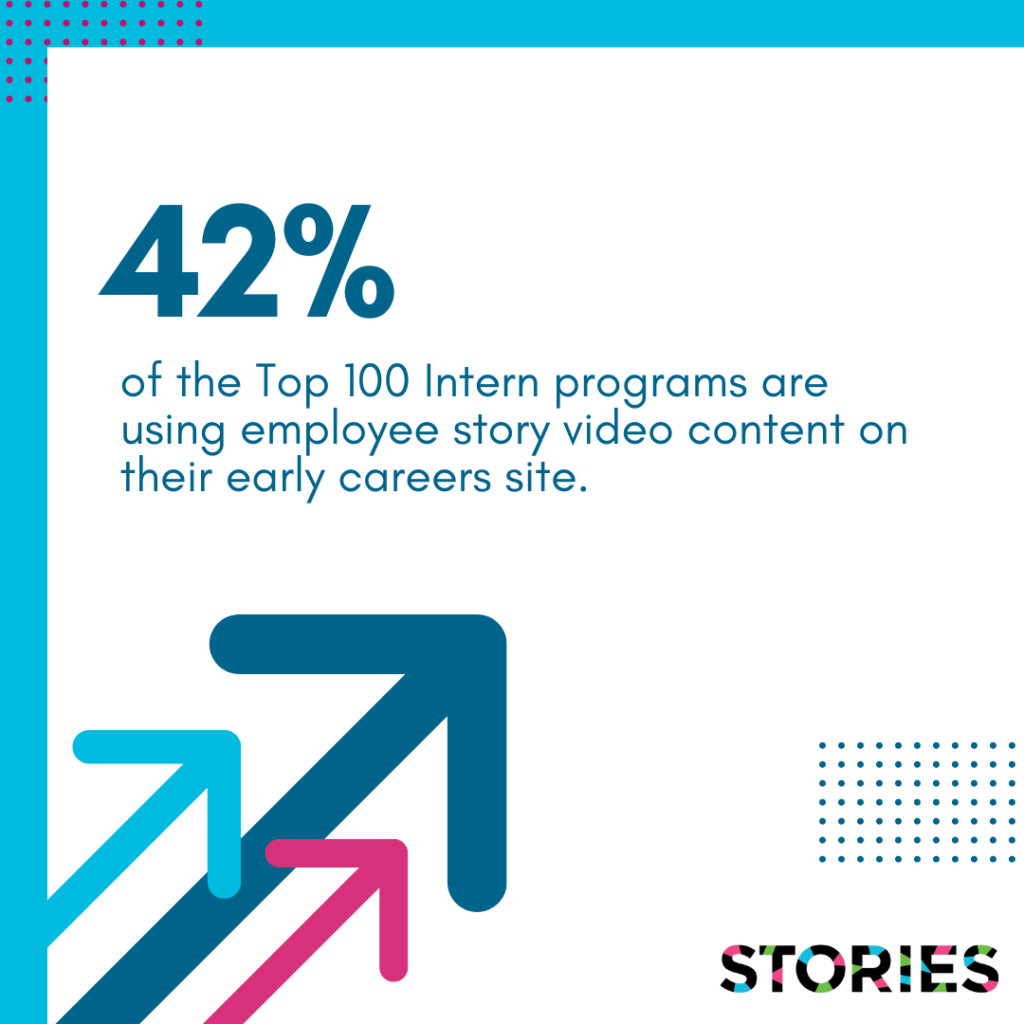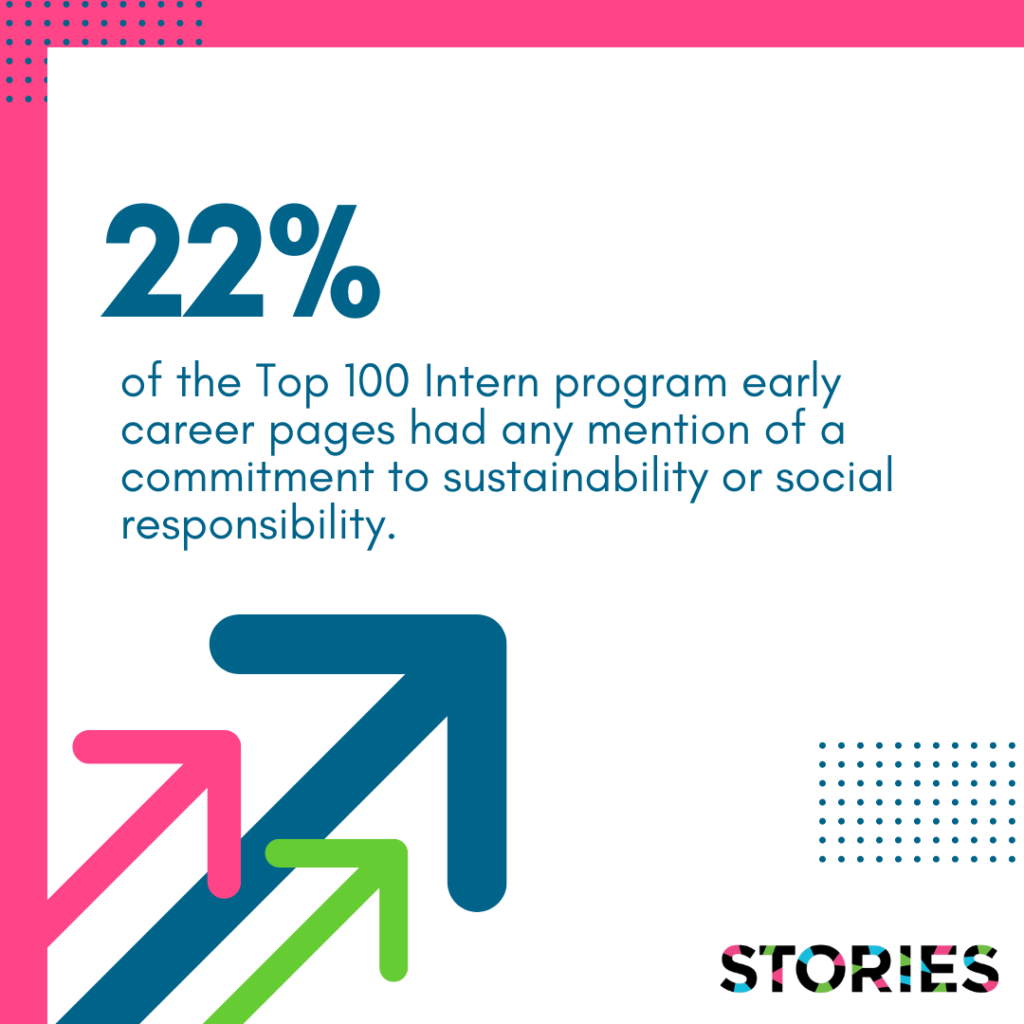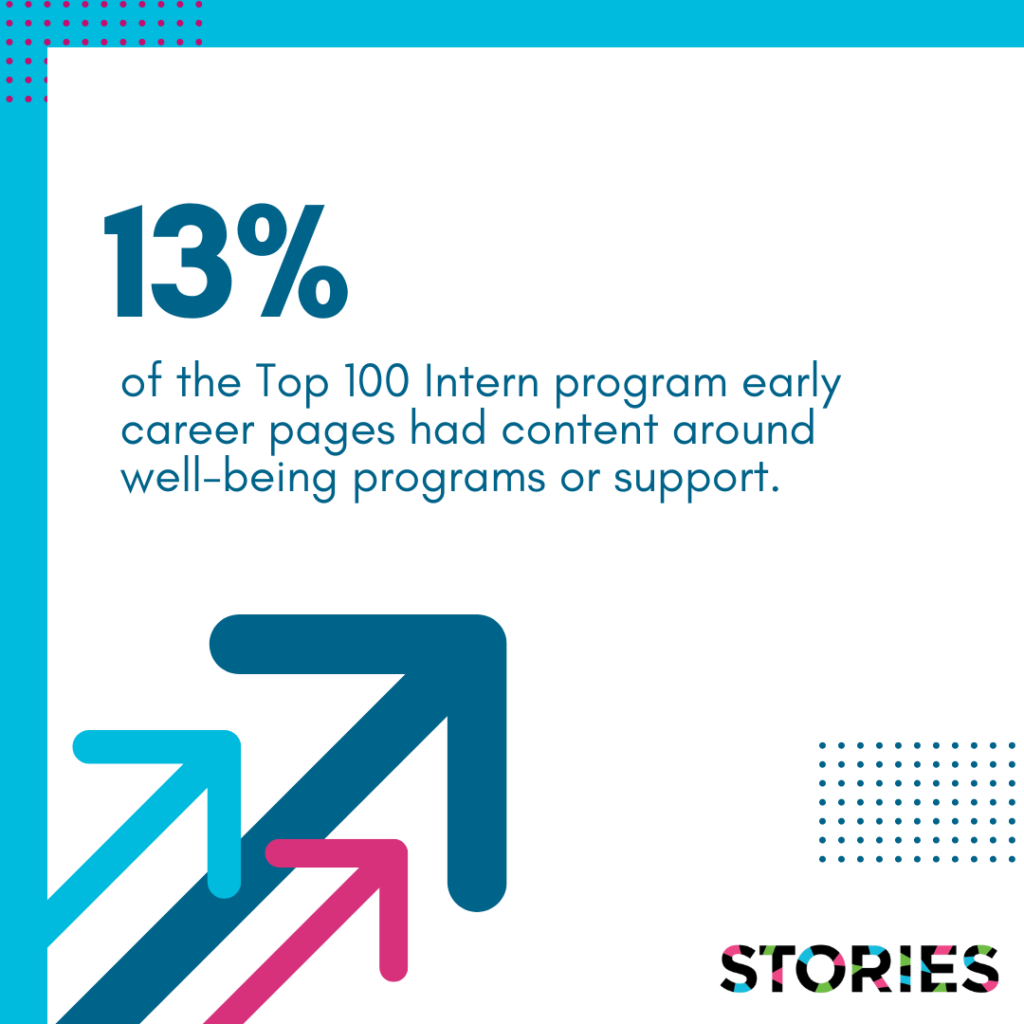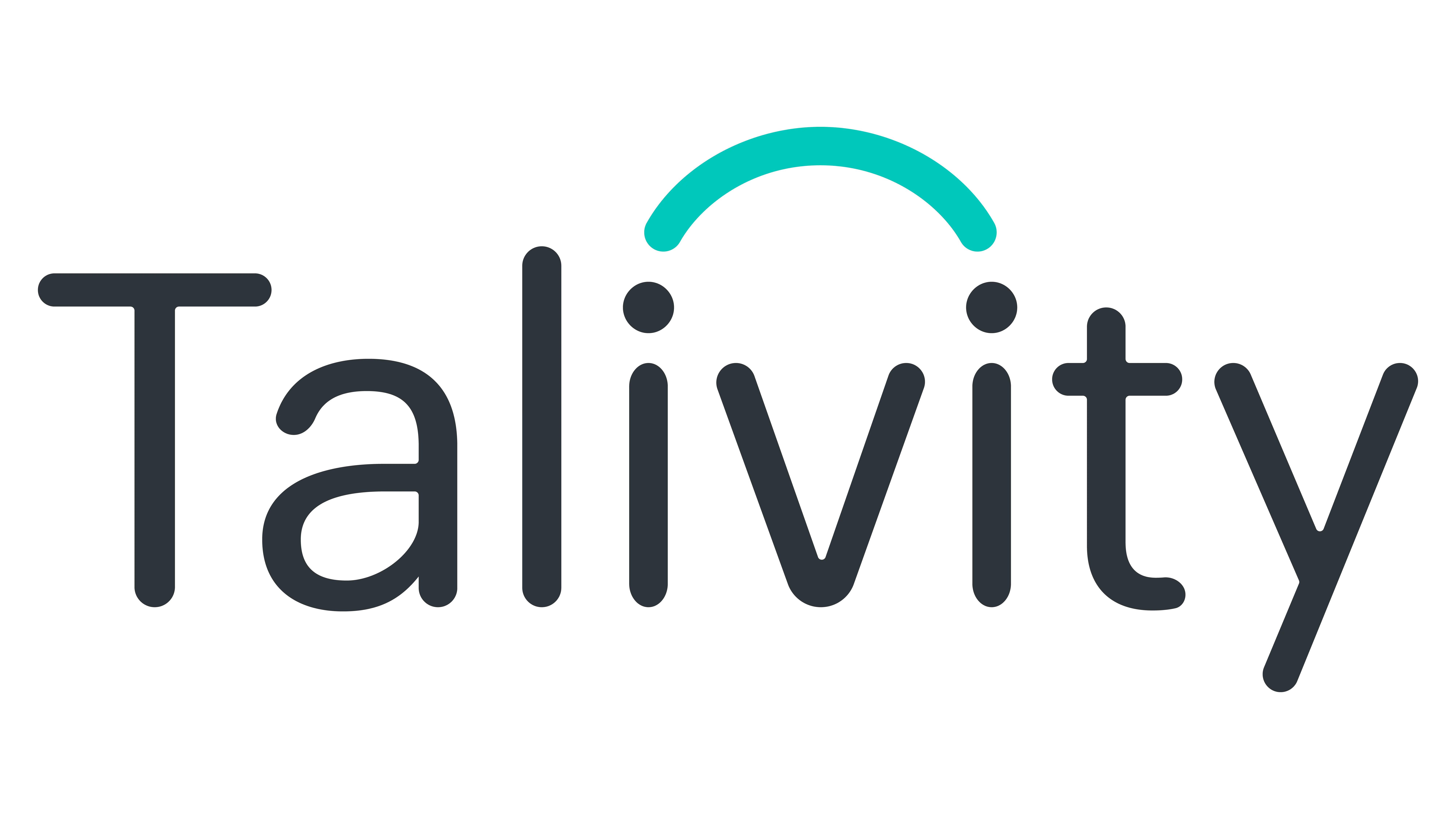Reading Time: 8 minutes
Born between 1995 and 2012, Gen Z makes up almost a quarter of the U.S. population and is on track to be the most diverse generation in U.S. history. Right now, the oldest Gen Z person is 29 years old, and the youngest is 12!
Even with this 17-year age gap, there are similarities across the generation when it comes to what they want in the workplace — with stability, social impact, and diversity & inclusion topping the list.
Guided by the latest in research on Gen Z in the workplace, we reviewed the career sites of the Yello and WayUp 2023 Top Intern Programs list to see if what Gen Z wants is being communicated effectively in the recruitment process.
Appealing to Digital Natives
While on-campus recruiting and conference hiring still reigns supreme in early career hiring, organizations still need to communicate their programs and benefits on their career sites. True digital natives, Gen Z candidates will look for information on the internship or early grad experience and a natural place they’ll land is the careers section on your site.
In our research, we found that 81% of companies on the Top Interns Program list have dedicated pages to early career opportunities and 73% have an easy way to navigate to that page from their main career page.
We’d expect nothing less from companies who are lauded as great places to launch a career. But with around 20% not having this information easily accessible, it’s a big miss for promoting your early career programs.
The Need for Relatable Early Careers Content
When Gen Z candidates are looking at your organization’s content, they want to see people like themselves. Remember, they’re the most diverse generation yet so this means they need to see a wide range of backgrounds represented.
In our research, we found that 65% of companies used real employee photos on their early career page, but only 52% of pages included a video. And unfortunately, only 42% of the video content on early career pages included real employees rather than stock imagery and voiceovers.

There is also a big gap in text-based employee stories. Only 49% of companies included text-based stories from previous interns or early grad hires.
Key takeaway: A big area of opportunity is to show off your past hires and their accomplishments so future candidates can see themselves in your organization. While it’s great to do this on social media during peak hiring seasons, it’s important to have evergreen content on your career site that can be discovered all year round.
What’s Important to Gen Z in the Workplace
There are five research-backed things that are important to Gen Z at work. And in our research, there is a significant gap between what they want and need with what is being communicated in early career content.
Career and financial stability
McKinsey found that 45% of Gen Z is concerned about the stability of their employment and is more likely to report that the pay they receive does not allow for a good quality of life. On top of that, 80% are already thinking about retirement and 65% say they wouldn’t take a job that didn’t offer retirement benefits (Handshake).
This means they are evaluating career opportunities for the long term—even if they don’t intend to stay at one company their entire career.
But when we evaluated the information on early careers pages, only 31% of companies offered any information about career or financial stability. This could be as simple as sharing that an intern program is a paid opportunity, or as detailed as information on retirement benefits for a full-time hire.
Not having any information about the potential for a stable career is a big miss when this is one of the most critical aspects of work for Gen Z.
Social impact
A recent Deloitte report found that 77% of Gen Z respondents said it mattered to work at an organization whose values align with their own. It also found that Gen Z no longer forms opinions of a company solely based on the quality of their products but also now on their ethics, practices, and social impact.
So, how a company shows up in the world is important. But only 22% of early career pages had any mention of a commitment to sustainability or social responsibility.

Career growth and learning opportunities
It’s no secret: career development and opportunities for growth are important to almost every generation. But when 87% of Gen Z say that learning and development benefits are important when evaluating a job opportunity, you think it would be talked about more in early career content.
Only 39% of companies had any mention of learning and growth opportunities, which means the majority are missing information that is critical for this generation.
Flexibility and support for well-being
Here are some startling facts about why well-being is so important to Gen Z:
- 90% say flexibility is an important factor when considering a job1
- 78% say having a sustainable work-life balance is essential to their definition of career success2
- 80% are highly or somewhat worried about burnout once they start a professional career3
- 55% of 18- to 24-year-olds report having received a diagnosis and/or treatment for a mental illness4
These are significant reasons to share your organization’s commitment to well-being. But we found only 13% of companies had any mention of flexibility, well-being programs, or mental health support. That’s a huge miss in early careers content.

Commitment to diversity, equity, and inclusion
As the most diverse generation, Gen Z prioritizes diversity. Deloitte found that Gen Z is also the most likely generation to have individuals that identify as non-binary/third gender. To attract Gen Z talent, companies need to make sure people across all backgrounds are represented in their marketing content and show their commitment to an inclusive workplace.
Unfortunately, only 20% of companies included anything related to DEI on their early careers pages.
Build an early careers content strategy with Gen Z in mind
The five most important things to Gen Z in the workplace are being overlooked in early career content. To create content that resonates with this audience, share the stories of your past interns and early grad hires. They are best positioned to speak to your organization’s impact on team members like them, along with the programs and benefits that have mattered most.
It will be a few more years until the youngest of Gen Z enter the workforce, but the vast majority are already here. It’s time to focus early career content on what matters most in order to attract new talent and engage existing employees.
References:
The post Gen Z in the Workplace: How Leading Companies are Communicating with Gen Z Talent [New Research on Early Career Content] appeared first on Stories Incorporated.
 ︎
︎